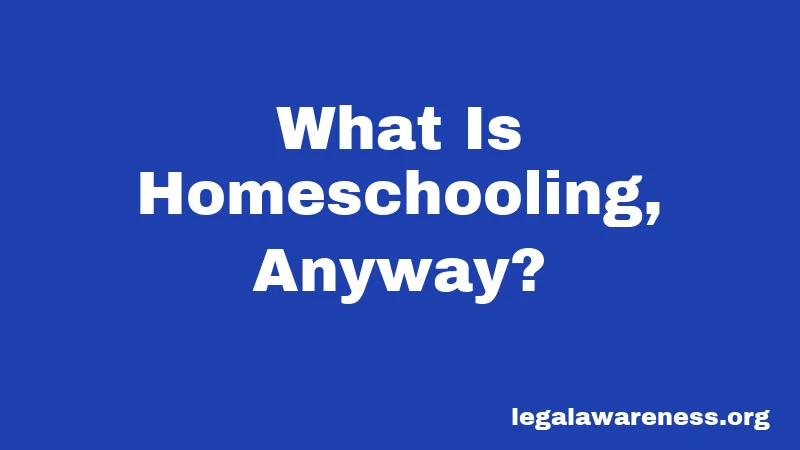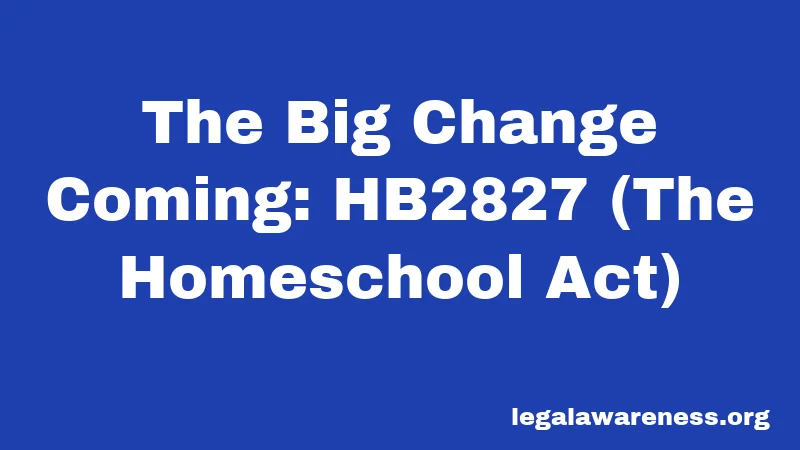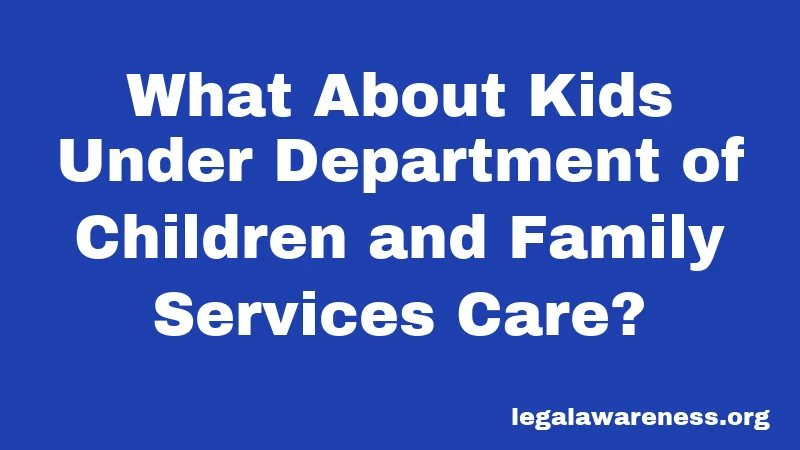Illinois Homeschool Laws in 2026: Big Changes Coming
Most people don’t realize that Illinois is about to completely change how homeschooling works. Seriously. If you’re thinking about homeschooling your kids—or you’re already doing it—you need to understand what’s happening.
The good news? Right now, in 2025, Illinois is still one of the most flexible states for homeschooling. But wait, it gets interesting. A new bill called HB2827 (the “Homeschool Act”) is moving through the Illinois government right now. It will change everything starting in 2026 and 2027. Let’s break down what you actually need to know.
What Is Homeschooling, Anyway?

Homeschooling is when parents teach their kids at home instead of sending them to public school. Think of it like being your child’s teacher, principal, and school all rolled into one.
In Illinois, homeschooling is treated as a private education option. This means it’s completely legal, and parents have tons of freedom in how they teach. The state doesn’t care if you follow a textbook, use online programs, or learn through field trips and real-world experiences. What matters is that kids actually learn the required subjects.
Current Illinois Homeschool Laws (What’s in Effect Now)
The Basic Requirement: Teach Core Subjects
Here’s the main rule you need to follow right now. Your child must learn the same basic subjects that public school kids learn. Simple enough, right?
These subjects include language arts, math, science, social studies, fine arts, and physical education and health. You have to teach these in English. No special format required. No tests demanded. No curriculum police checking your work.
The cool part? You get to decide how to teach them. Some parents use online programs. Others use textbooks. Many homeschoolers do a mix of everything—books, videos, museums, sports, music lessons, community service. It all counts as long as your child is actually learning.
Notification: Do You Have to Tell Anyone?
Not right now. Illinois does not require you to register before you homeschool. There’s no official government form you must fill out. There’s no permission slip you need from the state.
But wait. Here’s where it gets tricky. If your child was already in public school, you should notify that school in writing that you’re withdrawing your child. Just send a simple letter. Keep a copy for your records. Otherwise, the school might mark your kid absent and eventually call a truancy officer. That would be a headache.
If your child never attended public school? You don’t legally have to tell anyone anything.
That said, the Illinois State Board of Education recommends sending them a voluntary registration form. It’s not required, but it can help prevent confusion down the road. You won’t get in trouble if you skip it, though.
Parent Qualifications: No Diploma Required
Here’s something that surprises a lot of people. You do not need a high school diploma to homeschool in Illinois. You don’t need a teaching certificate. You don’t need any special training or license.
Honestly, this is one reason Illinois is so homeschool-friendly. The state trusts parents to educate their own kids. The logic is simple: parents know their children better than anyone. So if a parent wants to teach their child, the state gets out of the way.
You could be a college graduate or someone who dropped out of high school. Doesn’t matter. If you’re willing to teach your child the required subjects, you can homeschool.
Record Keeping: Keep Your Stuff
The state doesn’t require you to submit records to anyone. You don’t have to send in grades, attendance sheets, or work samples. You don’t have to take standardized tests. None of that is mandatory.
But here’s the thing. You should still keep records anyway. Trust me on this one.
Why? If someone ever questions whether your child is getting a real education, you’ll want proof. Keep work samples. Keep a record of what your child learned and when. Keep attendance information showing your child is actually doing schoolwork. It’s like insurance. You probably won’t need it, but if you do, you’ll be really glad you have it.
Testing: Totally Optional
Illinois doesn’t require homeschoolers to take standardized tests. No SAT, no ACT (unless your kid wants to go to college). No state tests. Nothing.
Want your child to take tests anyway? Go ahead. It’s totally your choice. Some parents like the feedback. Others prefer to assess their kids in different ways. Either way, the state doesn’t care.
The Big Change Coming: HB2827 (The Homeschool Act)

Here’s where things get serious. A new law is coming. It’s not completely final yet, but it’s moving through the Illinois government and probably will become law by 2026.
This bill will change how homeschooling works in Illinois. And honestly? It’s a pretty big deal.
What HB2827 Will Require
The Homeschool Declaration Form
Starting in 2026-2027, every homeschool family will have to fill out an official form called the Homeschool Declaration Form. You’ll submit this to your local school district.
This isn’t optional. If you don’t submit it, your child will be considered truant. That means the same penalties apply as if your child skipped public school.
What goes on the form? The state is still figuring that out. But it will definitely include your child’s name, birthdate, grade level, and home address. It will also ask for the homeschool teacher’s (that’s you) name, birthdate, and contact information.
Proof of Qualifications
Under HB2827, the homeschool teacher must have at least a high school diploma or its equivalent (like a GED). This is different from right now, where no diploma is needed.
You’ll have to prove you have this diploma. So keep your diploma or GED certificate in your records.
When It Takes Effect
The form becomes available July 1, 2026. Starting with the 2026-2027 school year, you’ll have to submit it by September 1 each year.
If the bill passes as written, this requirement kicks in soon. Like, within months.
Required Subjects Stay the Same
Good news. HB2827 doesn’t change which subjects you have to teach. It’s still language arts, math, science, social studies, fine arts, and physical education and health. No new subjects. Same as now.
You still get to choose how to teach them and what materials to use. That freedom doesn’t go away.
Educational Portfolio: What’s This?
Okay, here’s a part that worries some parents. HB2827 allows truancy officers to request an “educational portfolio” if they’re investigating whether your child is actually getting educated.
What’s an educational portfolio? Basically, evidence that your child is learning. This could include work samples, reading lists, project descriptions, photos of field trips, or anything else showing education is happening.
If a truancy officer asks for it, you have 10 days to provide it.
Sound complicated? It’s actually not. It’s just collecting the stuff most homeschoolers keep anyway—proof that learning is happening.
New Health Requirements (If Your Child Uses Public School Activities)
Here’s something important. If your homeschooled child wants to take classes at the public school or participate in public school activities, health requirements kick in.
Your child will need proof of all required immunizations and health exams. Or, you can provide a signed Certificate of Religious Exemption if that applies to your family.
This rule is already in place for public school kids, so this just extends it to homeschoolers using public school programs.
What counts as public school activities? Things like sports teams, clubs, classes, or field trips that happen on school grounds or are sponsored by the school.
What About Kids Under Department of Children and Family Services Care?

This is important if it applies to your family. If a child is under the custody of the Illinois Department of Children and Family Services (DCFS), special rules apply.
You’ll need to get permission from the Department of Children and Family Services Guardian Administrator before submitting the homeschool form. This is an extra step, but it makes sense. The state wants to make sure these vulnerable kids are getting real education.
If this applies to you, contact your local DCFS office to understand the process.
Penalties If You Don’t Comply
Wondering what happens if you break these rules? The consequences are real.
If you don’t submit the Homeschool Declaration Form (once it’s required), your child is considered truant. Truancy is serious. It can result in fines for parents. It can also lead to legal action.
Failing to comply with education requirements can get even more serious. In some cases, it could potentially lead to jail time for parents, though this is unusual and typically only happens in extreme situations involving severe child neglect.
The bottom line? These aren’t rules to ignore. HB2827 makes them harder to sidestep.
What If You Disagree with These Changes?
You’re not alone if you’re frustrated about HB2827. Thousands of homeschooling families and religious groups oppose this bill. They worry about privacy. They worry about government overreach. They worry about keeping faith-based families’ information private.
As of right now, HB2827 hasn’t become law yet. It still needs to pass both the House and Senate in the Illinois General Assembly. The bill could change. It could fail. It could pass exactly as written.
If you have strong feelings about this, you can contact your Illinois state representatives and senators. Tell them how you feel about this bill. That’s how the system works.
How to Get Started With Homeschooling in Illinois (Right Now, in 2025)
Step 1: Withdraw Your Child (If They’re in Public School)
If your child is currently in public school, send a formal withdrawal letter to the school principal. Keep a copy for yourself.
You don’t have to explain why you’re withdrawing. Just make it clear that your child will no longer attend. Some schools have a withdrawal form. You can use that if they do.
Step 2: Understand the Required Subjects
Make sure you understand what you’re supposed to teach. The six core subjects are pretty straightforward, but look them up on the Illinois State Board of Education website to get specific ideas.
You don’t need fancy materials or expensive programs. You can build a homeschool using free library books, YouTube videos, community resources, and real-world experiences.
Step 3: Optional: Submit the Voluntary Registration Form
Find the ISBE Home Schooling Registration Form on the Illinois State Board of Education website. Fill it out and submit it if you want to. It’s voluntary, not required.
This form basically says, “Hey, I’m homeschooling my kid and I’m aware of my legal obligations.” It’s good insurance, honestly.
Step 4: Keep Records (Even Though You Don’t Have to Report Them)
Start a system for keeping records. This could be as simple as a folder where you save work samples, a notebook for attendance, or a document listing what your child learned each month.
You’ll thank yourself later if you ever need to prove that learning is actually happening.
Step 5: Teach the Required Subjects
Start teaching. Follow whatever curriculum or approach makes sense for your family. Remember, you have tons of freedom here. Use it.
Step 6: Stay Connected (Optional)
Many homeschoolers join groups or co-ops for support and socialization. This is totally optional, but it can make homeschooling way easier, especially if you’re new to it.
Special Circumstances and Exceptions
Part-Time Homeschooling in Illinois
Here’s something most states don’t allow. Illinois lets you do part-time homeschooling.
Your child can be homeschooled for some subjects while taking classes at a public school for others. Or your child could take one or two classes at public school and the rest at home.
This gives families flexibility that’s actually pretty rare. If you’re thinking about easing into homeschooling, or your child wants some traditional school experience while staying mostly homeschooled, this option exists.
Access to Public School Programs
Homeschoolers in Illinois can participate in some public school programs. You might be able to take classes at the high school. You could participate in some academic programs.
But here’s the catch. Extracurricular activities are usually off limits. If your kid wants to join the school sports team, that probably won’t happen unless the school makes an exception.
Contact your local school district to ask what programs are available to homeschoolers.
High School Graduation and Transcripts
Since homeschoolers are treated as private school students, each homeschool creates its own graduation requirements and issues its own diplomas.
You get to decide when your child graduates. You create the transcript showing what your child learned. You sign the diploma.
Colleges accept homeschool diplomas and transcripts. There’s no disadvantage when applying to college. You might need to provide more documentation than a public school student would, but it’s not a problem.
Frequently Asked Questions
Do I have to use a specific curriculum?
Nope. You can use any curriculum you want, or none at all. You could use textbooks, online programs, community college classes, tutors, or real-world learning. As long as your child is learning the required subjects, you’re good.
Can my homeschooled child play sports?
That depends on your school district. Some allow homeschoolers on sports teams. Others don’t. Contact your district to find out. Many homeschoolers join club sports or recreational leagues instead.
What if a truancy officer comes to my door?
Stay calm. You can ask to see a warrant. You don’t have to let them in without one. Be respectful and explain that you’re homeschooling in compliance with Illinois law. Show them evidence that your child is being educated (your records). If they’re investigating, cooperate, but know your rights.
Does HB2827 definitely become law?
Not necessarily. As of now, it’s still in the legislative process. It hasn’t been voted on yet. It could pass, it could fail, or it could change significantly before becoming law. Keep an eye on updates.
What if I can’t afford fancy curriculum?
You don’t need to spend much money. Libraries have free books and resources. Many communities offer free programs and classes. Online resources are free or cheap. Homeschooling doesn’t have to be expensive.
Can I homeschool if English isn’t my first language?
Yes, but your child must be taught in English. The law requires instruction in English. If you’re learning English too, that’s okay. Just make sure your child is learning the required subjects in English.
Final Thoughts
Illinois homeschooling is changing. Right now, it’s flexible and parent-friendly. Starting in 2026, it will have more structure and oversight.
The good news? Homeschooling is still totally legal and still a great option for many families. The requirements aren’t unreasonable. You just need to be aware of what’s expected.
Stay informed about HB2827. Check the Illinois State Board of Education website for updates. If you have questions about your specific situation, reach out to your regional superintendent of schools or a homeschool organization.
Now you know the basics. Stay informed, keep records, and when in doubt, ask questions. That’s how you make homeschooling work in Illinois.
References
Illinois General Assembly – HB2827 Bill Status
Illinois State Board of Education – Homeschooling Information
Illinois Home School Association – Illinois Homeschool Law
